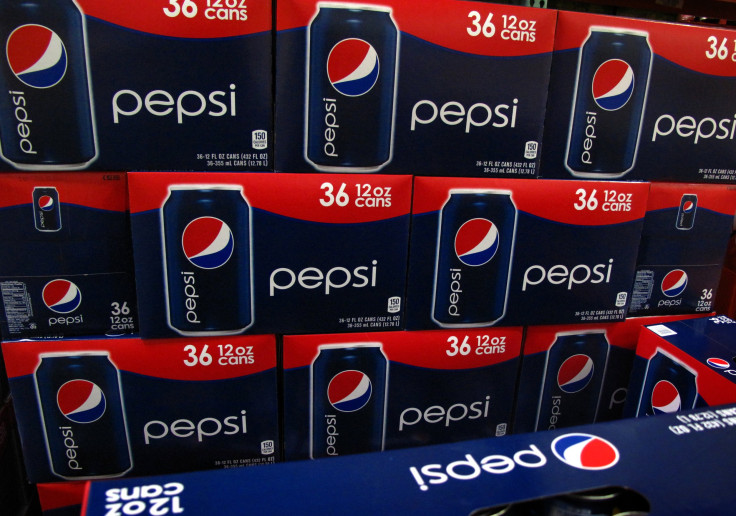Pepsi (PEP) Teams Up With Buffalo Wild Wings, Ousting Coke (KO)

This story was updated on Feb 11, 2014, with comments from Buffalo Wild Wings.
U.S. food and drinks giant PepsiCo, Inc. (NYSE:PEP) will displace arch-rival the Coca-Cola Company (NYSE:KO) to become sports dining chain Buffalo Wild Wings (NASDAQ:BWLD) chief drinks provider, in a deal unveiled Thursday.
Pepsi and Buffalo Wild Wings, a fast expanding national chain, will also work on joint marketing related to sports, and collaborate on food products. Pepsi has a strong longtime relationship with the National Football League, which it uses for promotions during the Super Bowl. Last year's game attracted 164.5 million U.S. viewers.
Pepsi’s snack division, which sells Frito Lays, Doritos and Quaker products, is the better performing half of its business. The company has suffered from declining U.S. enthusiasm for soft drinks.
The agreement covers more than 975 U.S. stores. Financial terms weren’t disclosed.
Pepsi’s flagship cola won’t be the only product that Buffalo pushes onto its customers. Buffalo Wild Wings fans have asked for Mountain Dew, according to the company’s CEO. The agreement also spans Pepsi’s Tropicana juice products and Lipton teas, besides allowing scope for “unique menu offerings with … Doritos, Fritos, Tostitos and Ruffles,” according to a news release.
“We see tremendous opportunities to leverage PepsiCo’s diverse food and beverage portfolio in ways that benefit both companies,” Pepsi CEO Indra Nooyi said in a statement.
Buffalo Wild Wings’ conversion to Pepsi products will begin in early 2014, with the full transition scheduled to be done by spring. Beverage experiments could happen through early spring, with food combinations to come afterwards.
Combining Pepsi's snack brands with Buffalo's wings, or Pepsi's drinks with Buffalo's sauces, has made for "some interesting food possiblities" tested during the review of the deal, according to a Buffalo Wild Wings spokesman. Mountain Dew, Tropicana juices and Lipton teas are especially popular with Buffalo Wild Wings customers, he told IBTimes.
It’s unclear exactly how long Buffalo’s former partnership with Coke lasted or why it ended.
“We had poured Coca-Cola for a number of years, and together with our franchisees, we thought it was important to go out and have a look at what the options are,” Buffalo Wings CEO Sally Smith told the New York Times.
"Coca-Cola has been an important and valued partner Coca-Cola has been an important and valued partner of Buffalo Wild Wings, as they have been with us for a number of years," Buffalo Wild Wings spokesman David Hakensen told IBTimes in an email. "In the end, it came down to the partner that offered the most complete package that best aligned with our guests."
"We chose PepsiCo for a variety of reasons. They have a very strong beverage and food portfolio that aligns with our guest's preferences...PepsiCo has a unique understanding of sports, music and entertainment that appeal to our guests."
"Certainly their relationship with many of the nation's premier sports leagues, including the NFL, is a natural fit with our Game Day experience. Football is a big focus for us, including the NFL, Super Bowl and fantasy leagues," wrote Hakensen.
A Coke spokeswoman declined to comment, noting: “We don’t comment on contractual agreements related to our customers.”
Pepsi has done a similar deal with Yum Brands, Inc.'s (NYSE:YUM) Taco Bell in the past. The Dorito Locos Tacos sold by Taco Bell is the biggest launch in Taco Bell’s history, Taco Bell CEO Greg Creed said in 2013. About 600 million tacos have been sold since March 2012. A Pepsi spokeswoman told IBTimes that they've struck similar deals with Yum! subsidiaries KFC and Pizza Hut, as well as Papa John's. The company wouldn't comment on any other pending or potential food and drink partnership deals.
Buffalo Wild Wings is headquartered in Minneapolis, though it has stores in 49 states and Canada. It opened 72 company-owned restaurants in its latest quarter, on a sales boost of 5 percent and a profit upswing of 67 percent.
Pepsi and Coke have also competed for customers in emerging markets, like Russia and China. Their latest quarterly earnings have slowly recovered from weakness in 2012.
© Copyright IBTimes 2024. All rights reserved.






















